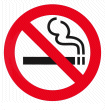(PRWEB) May 13, 2004 -- Last year two GSK consultants combined and averaged all seven over-the-counter nicotine patch and gum studies. The shocking results were published in the March 2003 edition of Tobacco Control. They found that only 7% were successful in quitting smoking for six months. Amazingly, GSK’s May 3rd press release includes the admission that among those who quit smoking, "7% used the gum for 6 months or more." Correct me if wrong but isn't seven minus seven still zero?
Upon discovering how to abstract pure nicotine from the tobacco plant the pharmaceutical industry actually rewrote the definition for quitting. Prior to that moment all methods of quitting included breaking free from nicotine too, the sine qua non of smoking.
The modern quitter now has four important considerations in comparing and picking cessation products, procedures or programs: the smoking cessation rate, the nicotine cessation rate, the length of time they quit (for purposes of making accurate comparisons), and how results were verified.
As for verifying results, self reporting relies entirely upon the honor system, expired carbon monoxide levels test for smoking but do not test for the presence of nicotine, and blood cotinine testing (a long-lasting nicotine metabolite) is the common method for detecting recent nicotine use.
Few NRT studies examine cotinine levels but for those concerned about continuing dependency upon nicotine it can be a rather important piece of information. In a 2002 nicotine lozenge study by GSK consultants, victory in quitting smoking was declared at six weeks while study participants were offered up to 20 lozenges a day for six full months.
GSK's press release also asserts that NRT "doubles a smoker's chances of quitting versus cold turkey." We now have four large real-world quitting surveys in which performance of smokers quitting cold turkey is directly compared against those quitting with NRT -- California, Minnesota, London and Quebec. In each case cold turkey quitters performed as well as NRT quitters at six months - zero advantage.
Not only has the pharmaceutical industry redefined quitting, amazingly, it has taken the liberty of redefining who is and isn't a cold turkey quitter. It's fully aware that "real" cold turkey quitters - those actually motivated to quit cold turkey - were not invited to compete in formal NRT studies.
In almost all NRT studies, participants were recruited by being promised a 50/50 chance of receiving weeks or months of free NRT products. When assigned to the placebo group instead, a significant percentage were somehow able to sense that the flow of nicotine to their brain had ended.
In one of the seven OTC NRT studies - Sonderskov 1997 - at study's end only 18.3% of those in the placebo patch group believed that they had received the real nicotine patch. The authors openly admit that "the effect of such a blinding failure would probably be a reduction of the placebo effect."
Chance? Coincidence? Apparently not. A new study in the June 2004 edition of Addictive Behaviors identified 17 NRT studies which assessed blindness. The authors assert that "12 studies found that subjects accurately judged treatment assignment at a rate significantly above chance."
Has a billion dollar industry been built entirely upon meaningless odds ratio victories that reflect little more than high placebo group dropout rates due to seriously frustrated expectations? If so, at what cost in terms of quitting opportunities, time, and lives needlessly lost? At what cost in terms of the integrity of science?
XXX
About the author: John R. Polito is the founder of www.WhyQuit.com, the internet's oldest forum devoted exclusively to teaching the art, science and psychology of abrupt nicotine cessation, and also presents bimonthly nicotine dependency recovery programs at the College of Charleston.
Contact Info:
John R. Polito
Nicotine Cessation Educator
1325 Pherigo Street, Mt. Pleasant, SC 29464
(843) 849-9721
e-mail protected from spam bots
Fact References:
1. "GlaxoSmithKline Consumer Healthcare Response to New York Times Article About Long-Term Use of Nicorette®", May 3, 2004 http://www.quit.com/news.aspx?id=209
2. "A Quitter's Dilemma: Hooked on the Cure," by Petra Bartosiewicz, New York Times, Sunday, May 2, 2004, Sunday Business, Late Edition - Final, Section 3 , Page 8 , Column 1
http://query.nytimes.com/gst/abstract.html?res=FA0D17FE3E590C718CDDAC0894DC404482. If archived, link to alternate source: http://www.goupstate.com/apps/pbcs.dll/article?AID=/20040502/ZNYT04/405020437/1051/NEWS01
3. Hughes, JR, Shiffman, S, et al., A meta-analysis of the efficacy of over-the-counter nicotine replacement . Tobacco Control, March 2003;12:21-27 - link to free full text: http://tc.bmjjournals.com/cgi/content/full/12/1/21?ijkey=5.ko5/Oz4yutI
4. Pierce, JP, et al., Impact of Over-the-Counter Sales on Effectiveness of Pharmaceutical Aids for Smoking Cessation. Journal of the American Medical Association, September 11, 2002;288:1260-1264 - link to free full text in PDF format: http://www.fchn.org/fmh/wmchh/articles/sept/otc_smk_cess_aids.pdf
5. Boyle, RG, et al, Does insurance coverage for drug therapy affect smoking cessation? Health Affairs 2002 Nov-Dec;21:162-8 - link to study abstract: http://content.healthaffairs.org/cgi/content/abstract/21/6/162
6. SmokeFree London, Tobacco in London - Facts and Issues, June 2003, Figure 14, PDF page 17 - link to report in PDF format: http://www.lho.org.uk/HIL/Lifestyle_and_Behaviour/Attachments/PDF_Files/SmFeeFactsIssues.pdf
7. Gomez-Zamudio, M, et al, Role of pharmacological aids and social supports in smoking cessation associated with Quebec's 2000 Quit and Win campaign, Preventive Medicine 2004 May;38(5):662-7 - link to study abstract: http://www.ncbi.nlm.nih.gov/entrez/query.fcgi?cmd=Retrieve&db=pubmed&dopt=Abstract&list_uids=15066370
8. Sonderskov J, et al, Nicotine patches in smoking cessation: a randomized trial among over-the-counter customers in Denmark. American Journal of Epidemiology 1997 February;145: 309 to 318 - link to study abstract: http://www.ncbi.nlm.nih.gov/entrez/query.fcgi?cmd=Retrieve&db=PubMed&list_uids=9054234&dopt=Abstract
9. Mooney M, et al, The blind spot in the nicotine replacement therapy literature: Assessment of the double-blind in clinical trials. Addict Behav. 2004 June;29(4):673-84 - link to study abstract: http://www.ncbi.nlm.nih.gov/entrez/query.fcgi?cmd=Retrieve&db=pubmed&dopt=Abstract&list_uids=15135549









